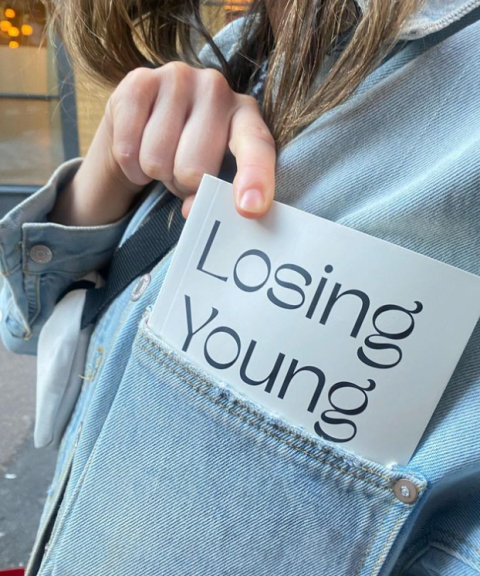By Rachel Wilson
My mother was diagnosed with terminal cancer just after I turned 25, in 2017. I was doing my Master’s; I’d just finished my finals (my parents didn’t want to tell me before my exams) and had my thesis left to write. The university were supportive enough but I wasn’t offered an extension on my thesis. My supervisor warned me that I might not do as well as I was hoping. I understood she was trying to be kind but I hated this early acknowledgement that this awful thing – this grief – might limit me, particularly in an area of my life that was so important to me. Luckily, my thesis still got a high mark. Not so luckily, my mother died a year later, a day after my 26th birthday.
After my mum died, I knew instinctively I wanted to speak to other young people who had experienced grief. But back in 2018 there was nothing out there for young people – we were lumped in with older adults, who I felt I wouldn’t have as much in common with. That’s why I founded The Grief Network– a community run by and for young bereaved people.
I’ve spoken to hundreds of young people about ‘quarter-life’ grief and learn why it is such a distinctive time of life to experience your first big loss
Over the last 5 years, I have spoken to hundreds of young people about ‘quarter-life’ grief at Grief Network meet-ups and learnt why it is such a distinctive time of life to experience your first big loss. In my new book, Losing Young: How to Grieve When Your Life is Just Beginning, I talk to many different young people about the losses that shaped them, speak to grief experts about why we are culturally inept at talking about grief and explore how we can better support young people with the distinct challenges they face.
‘Quarter-life’ (or ‘emerging adulthood’, to give it the psychology term) is the unique period of time between your late teens and early thirties. It is marked by flexibility and in-betweens: you might still rely on your family to tell you how to work a dishwasher, but you’re otherwise living independently. Legally, you’re an adult but emotionally you can often still feel like a big kid. You’re starting to think about your future and what your life might look like – images that will include your loved ones in them. You’re certainly not expecting anyone you love to die and be absent from that imagined future.
When you’re bereaved as a student, it’s easy to feel that everyone is getting to have that ‘amazing time’ but you. They’re getting that once-in-a-lifetime experience of being totally carefree, while you feel aged beyond your years
This is no truer than at uni. In the UK, ‘uni’ is synonymous with ‘having the time of your life’. Older people will hear you’re at university and a wistful look will come into their eyes. They’ll tell you what an amazing time you’ll have, waxing lyrical about all the lifelong friends they made when they were at uni, all the youthful mistakes, all the ways in which they got to know themselves. When you’re bereaved as a student, it’s easy to feel that everyone is getting to have that ‘amazing time’ but you. They’re getting that once-in-a-lifetime experience of being totally carefree, while you feel aged beyond your years. That makes you feel incredibly isolated and can lead to other negative experiences: excessive reliance on alcohol, sex, or getting depressed, anxious and withdrawing socially altogether. What’s even worse is other young people around you simply don’t understand your behaviour as grief, and you might feel you have no one to talk to about how you’re feeling.
These are the kinds of experiences that the people I speak to in the book describe. I speak to young grievers whose losses have affected their early years of independence, as well as other young life milestones: falling in love or having your first big break up, changing friendship circles, the first years of your career, getting married, having children. The sad reality is that when you are bereaved during quarter-life, the experience is formative and can go on to inform every adult decision you go on to make, in a way that your peers might not understand.
Finding others who can relate and can listen to you without the awkwardness of non-bereaved friends who find death an uncomfortable topic is life-changing. It helped me to start to feel normal again.
What helps? For me, it was finding my network – people I could speak to who ‘got it’. People who understood what it was like for your friends to miss the mark when trying to support you, or who would listen when I was experiencing my grief differently to my other family members. That’s why initiatives like The Student Grief Network are so important. That’s why I wrote Losing Young, to give young people access to other stories that might resonate with theirs. You might be the only person you know going through it, but you’re certainly not the only person who’s ever gone through it. Finding others who can relate and can listen to you without the awkwardness of non-bereaved friends who find death an uncomfortable topic is life-changing. It helped me – and many others I know – to start to feel normal again.


